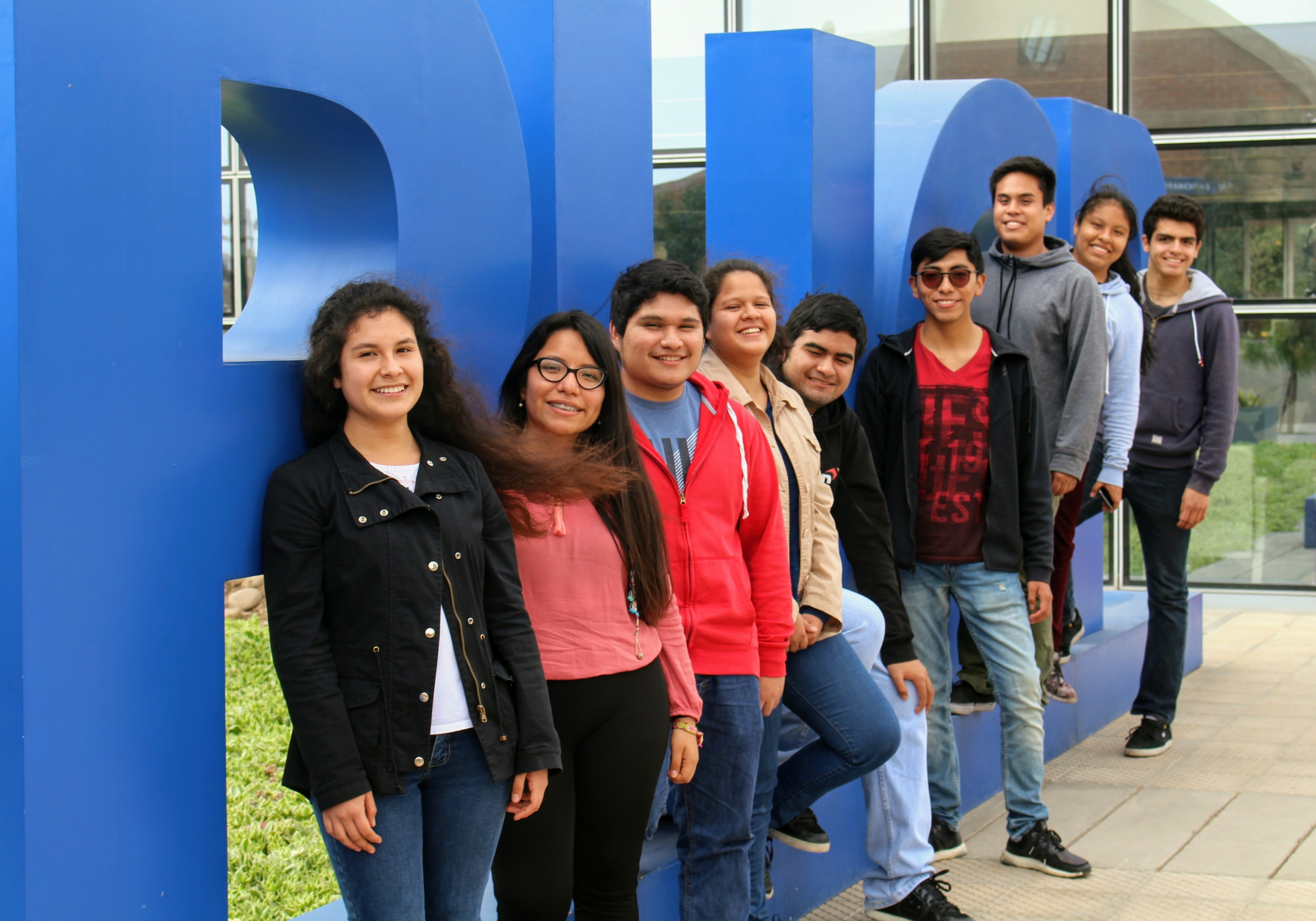
The General Directorate of Telesalud, Referrals and Urgencies and the General Information Technology Office of the Ministry of Health, in alliance with the Instituto de Medicina Tropical Alexander Von Humboldt from Universidad Peruana Cayetano Heredia (UPCH) and the academic program of Biomedical Engineering, a joint career of Pontificia Universidad Católica del Perú and UPCH, organized, on September 23 and 24, MINSA 2017 Hackathon, in order to contribute to improving health care quality through the use of informatic applications.
We congratulate Abiel Camacho, Viviana Chacon, Yhanira Medina, Andy Casafranca Carrascal, Gianella Ccama, Mercedes Berru, José Luis Cáceres, Sergio Castillo, Gary De La Cruz and Chris Moscairo, from the academic program of Biomedical Engineering, who were awarded the first place with their proposal “Vincere”, which enables, through a videogame, to pre-diagnose depression. Our students, who are still in General Studies – Science, competed with several experts who exercise in disciplines related to medicine and engineering.
How was the group formed?
We, as a team, had already worked together in the Introduction to Biomedical Engineering course, of said academic program. However, Yhanira Medina and Chris Moscairo joined to, thus, complete and complement the team for the competition. This hackathon was organized by MINSA, where five issues to solve arose. We chose “Mental Problems”.
Why was category “Metal Problems” chosen?
In first place, we commented and discussed about all topics, as all of them were very interesting, but we chose to develop the proposal on depression as it is an issue that affects us as students. Thus, we thought of our proposal as an immediate and feasible solution.
Tell us more about your proposal
“Vincere” is an app that attempts to pre-diagnose depression through a role play. We used the role play mechanic, as, through decision-making, users, in this case teenagers, answer a test, which results will be delivered to community mental health centers. Also, it has other two sections for family parents and professors who, through direct questions, may become aware if a person close to them is suffering from depression.
Why do you think you were chosen winners?
As told by the jury, we got the first place thanks to the innovative proposal of our project which goes beyond being a simple play. For instance, questions were specifically designed for the user, at the time of answering to them, to actually identify oneself with the character. The most difficult thing was to alter questions to introduce them into the narrative of a story.
What kind of consultancy was granted to you to carry out the project?
Each of the competition topics had nominated mentors. In our case, mental health, we had the consultancy from a psychiatrist, who works in a community health center. The expert explained us everything we needed to know to develop our project, for instance: how many community centers exist in Peru, why their existence is necessary, little interest from people in mental health issues, etc. Thus, we could understand the reality of community health centers, in this regard, the goal of our project is to try to make issues and needs viable.
What was the pace of work and the app development?
Hackathon lasted approximately thirty hours; during the first day, we delimited the topics and chose which topic we would focus on, then, we divided tasks to perform among us. One of them was to ensure questions are within the scope of clinical guidelines of psychiatrics and depression of the MINSA. We built the skeleton of the app jointly, as a team, each one gave own opinions and we could discuss about them to finally start with programming.
What is the next step for you as a group and for “Vincere”?
We have planned future meetings with experts from MINSA to talk about feasibility and project application in public health posts. Moreover, it is pending to see the possibility to couple the project to the education sector, mainly to fight against school harassment.
What was your personal experience participating in a competition like this?
Mainly, it is necessary to learn to work in team and focus, all together, on solving a same issue. Actually, things do not work if each one works separately and parts are joined. Our group, working orderly, with a lot of interest and will, could get the first place above surgeons, lawyers and experts from different areas, all of them professionals. Academically, that is what the academic program offers to us, which provides us with a lot of opportunities to create and innovate in favor of the public health of our country.
Source: MINSA Webpage